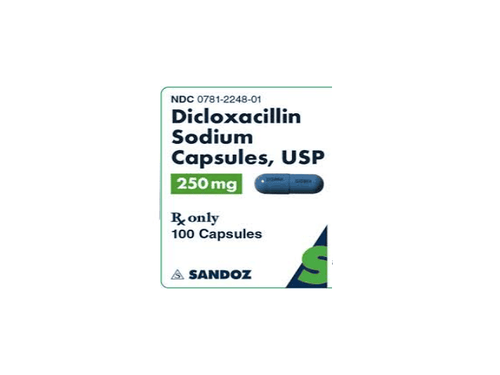This is an automatically translated article.
Deltazime drug is prepared in the form of powder for injection and solution for injection for intramuscular injection. Ceftazidime is used in the treatment of serious infections mainly caused by gram-negative bacteria.
1. What is Deltazime?
Deltazime medicine 1g/3ml in box form 1g vial and 1 ampoule of solvent for injection 3ml. Specifically: 1 vial of powder contains 1,164g Ceftazidime pentahydrate (equivalent to 1g Ceftazidime) and excipients; 1 tube of solution contains 3ml of distilled water for injection.
Ceftazidime is a 3rd generation beta-lactam (cephalosporin) antibiotic. Ceftazidime is a derivative of cephalosporic acid with the characteristics of being a broad-spectrum antibiotic, resistant to broad beta-lactamase, with high antibacterial activity. They are capable of destroying bacterial cell walls by inhibiting cell wall mucoprotein synthesis. As a result, Ceftazidime is active against broad-spectrum gram-negative and gram-positive bacteria, aerobic and anaerobic cells, strains of bacteria resistant to betalactam antibiotics (semi-synthetic cephalosporins and penicillins), aminoglycoside antibiotics. Ceftazidime is also highly resistant to lactamase-induced hydrolysis by gram-positive and gram-negative bacteria, making it active against cephalotyn and ampicillin-resistant strains of bacteria.
Indications for use of Deltazime:
Treatment of serious infections identified or suspected to be difficult to treat, caused by gram-negative bacteria or mixed bacteria in which most resistant gram-negative bacteria are present. common antibiotics. Especially the above infections in patients with weak health, immunocompromised; Prophylaxis in surgery, reducing the rate of infection after surgery. Deltazime is contraindicated in patients with a history of hypersensitivity to cephalosporin antibiotics and pregnant and lactating women.
2. How to use and dose Deltazime
Usage: Deep intramuscular injection or intravenous infusion. Patients are usually injected into the upper quadrant of the buttocks or injected into the lateral part of the thigh.
Dosage: Depending on the severity, sensitivity, type of infection, age, weight, kidney function of the patient, use under the supervision of a doctor. Specific dose for intramuscular injection:
Adults: Use dose 1-3g/day, divided into 2-3 times. In the treatment of pneumonia associated with chronic bronchitis, the dose is 1-3g/day, divided into 1-3 times; Children: Use dose 30-100mg/kg/day, divided into 2-3 times. When a higher dose is required, the drug can be administered intravenously; Patients with hepatic impairment: No dose change is required; Patients with renal impairment: Adjust dose based on creatinine clearance. Overdose: Ceftazidime overdose can lead to CNS sequelae including encephalopathy, convulsions and coma. Hemodialysis or peritoneal dialysis may decrease the concentration of Ceftazidime in the blood.
3. Deltazime side effects
When using Deltazime, patients may experience some side effects such as:
Reactions at the injection site: Phlebitis, thrombophlebitis due to intravenous infusion, pain, inflammation after intramuscular injection ; Hypersensitivity reactions: Fever, pruritus, rash, angioedema and hypersensitivity reactions (bronchospasm, hypotension), erythema multiforme, toxic skin necrosis, Stevens - Johnson syndrome; Digestive system: Nausea, vomiting, abdominal pain, diarrhea, oral candidiasis, colitis , pseudoconjunctivitis caused by Clostridium difficile; Genitourinary - urinary: Candida infection, vaginitis, jaundice; Neurological: Headache, dizziness, malaise, paresthesia, neurological sequelae (encephalopathy, coma, myoclonus, myoclonus, postural disturbance) have been reported in patients with renal impairment without dose adjustment. taking Ceftazidime; Clinical test results: Eosinophilia, positive Coombs test, hemolytic anemia, thrombocytosis, elevation of one or more liver enzymes (AST, ALP, LDH, GGT, alkaline phosphatase), transient elevation blood urea concentration, BUN, serum creatinine, leukopenia, neutropenia, thrombocytopenia, granulocytosis, lymphocyte increase. Patients should inform their doctor about the side effects encountered when using Deltazime drug so that appropriate intervention measures can be taken.
4. Be careful when using Deltazime
Before starting treatment with Deltazime, the patient should be carefully checked for a history of hypersensitivity to Ceftazidime, cephalosporins, penicillins or other drugs. other drugs. Deltazime should be used with caution in patients with a history of allergy to penicillins. If an allergic reaction occurs, the drug should be discontinued, appropriate emergency measures should be prepared such as antihistamines, adrenaline, corticosteroids,...; Deltazime users should be cautious of the risk of pseudo-conjunctivitis, and should pay attention to diarrhea as this is a warning sign of this condition. Use of the antibiotic Ceftazidime can affect the development of intestinal microflora, causing overgrowth of Clostridium causing antibiotic-associated colitis. Once pseudomembranous colitis is identified, appropriate therapeutic measures should be instituted. In mild cases, just stop taking the drug. In severe cases, fluids, proteins, and electrolytes should be given and bacteriological tests performed. In case the disease does not improve when the drug is stopped, Vancomycin can be taken; Concomitant use of high doses of Deltazime and nephrotoxic drugs such as aminoglycosides or diuretics such as furosemide may affect renal function; Ceftazidime is eliminated by the kidneys, so caution should be exercised when Deltazime is used in patients with renal impairment to avoid complications of increased blood levels of antibiotics such as convulsions or neurological sequelae; Prolonged use of Deltazime may result in overgrowth of non-susceptible microorganisms such as Candida and Enterococci. If this occurs, appropriate treatment measures should be instituted, even discontinuing the drug if necessary. A reevaluation of the patient's condition should be carried out; Some strains of Enterobacter spp and Serratia spp are initially sensitive to Deltazime but gradually need to develop resistance during treatment. When treating infections caused by these bacteria, the susceptibility of the bacteria should be checked periodically; Reproduction studies have shown no evidence that ceftazidime can cause decreased fertility or toxicity to the fetus. However, doctors still recommend using this drug in pregnant women only if absolutely necessary, under close supervision by a specialist; Ceftazidime is excreted in milk, so caution should be exercised when Deltazime is used in lactating women; Deltazime drug can cause headache, paresthesia, dizziness, discomfort, so caution should be exercised when driving or operating machinery.
5. Deltazime drug interactions
Drug interactions can affect the effectiveness of the drug or increase adverse side effects. Some drug interactions of Deltazime include:
Concurrent use of high doses of Ceftazidime (the main ingredient of Deltazime) and other nephrotoxic drugs may cause renal function impairment; Chloramphenicol is antagonistic to Ceftazidime and other Cephalosporins. The clinical relevance of this phenomenon has not been clearly determined, so caution should be exercised when combining these two drugs; Using Deltazime may affect the results of some laboratory tests. In particular, the drug can cause false positive results in urine glucose testing with Clinitest Fehling's solution or Benedict's solution. It is best to test glucose with the enzyme glucose oxidase reaction. During the course of taking Deltazime, the patient should coordinate with all indications of the treating doctor. This is important to ensure the best treatment effect and significantly reduce the risk of unpredictable side effects.
Please dial HOTLINE for more information or register for an appointment HERE. Download MyVinmec app to make appointments faster and to manage your bookings easily.













